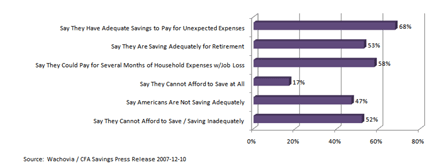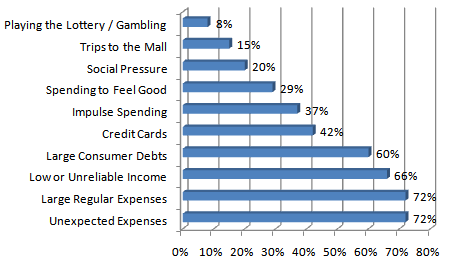They rounded up 2000+ "representative" American adults and presented each one with a 50-plus-question survey, as well as a certificate for a complimentary 36-hole round of miniature golf if they promised to overstate their own financial prowess. (Okay, I'm just making up that last part. But check out the charts below. You'll wonder where some of those numbers came from, too.)
Some General Tidbits
I'm presenting a few interesting tidbits in the chart below; click to enlarge it:

Wow. You'll pardon me if I don't exactly believe that over half of us are truly saving enough for retirement.
And how exactly it is that 53 percent of those surveyed say they're saving adequately for retirement, yet 52 percent say they cannot save at all or are saving inadequately, is beyond me. Perhaps the latter 52 percent are talking about saving overall, and not just retirement saving?
Reasons Why We Don't Save
One thousand of the survey respondents were asked about various specific factors which might or might not contribute to their non-saving ways. Percentages below reflect how many respondents attributed at least some of their "saving slacking" to each factor.

Yeah, well, can't say as I see any real surprises there.
The survey's press release can be found here:
CFA: Americans and Saving (PDF)
Labels: Statistics

